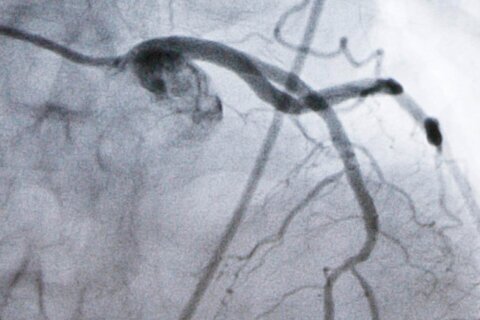WASHINGTON — Where were you on Sept. 11, 2001, when the planes hit the Twin Towers? How did you first hear of Kennedy’s assassination?
It’s likely that most Americans alive at the time of these traumatic moments in history can recall a few specific details from the day. But beyond the basics, it’s not uncommon for the rest to be hazy. In fact, it’s entirely possible to misremember even the most important moments in time.
Recently, Brian Williams issued a public apology and took a temporary leave of absence from his position as anchor on the NBC Nightly News after recanting a story he’d told for the past decade about his helicopter being shot down by a grenade in Iraq. In fact, it was the helicopter flying in front of Williams that came under fire. He said “the fog of memory over 12 years” caused him to conflate his accounts.
Williams isn’t the only person — or public figure — to have misremembered an important event. Washington Post reporter Amy Ellis Nutt tells WTOP that not only is misremembering not new; it’s very common — especially when it comes to emotional or traumatic memories. She likens recalling a memory to the childhood game of Telephone.
“What scientists have learned is that what happens with memory is that every time we recall an event, we recall the previous telling of the event — so that in essence, we’re never recalling the original information. It’s basically like having a Xerox of a Xerox of a Xerox,” says Nutt, who recently wrote about the science behind remembering in The Washington Post.
The New York Times produced a video showing just how Williams’ story changed over the years, and similar to Nutt’s explanation, Williams’ account of the incident is the slightest bit different each time he tells it.
Nutt says recalling an autobiographical memory is less like replaying a film and more like piecing together bits and pieces of information, ultimately making memories somewhat variable and unreliable. The reason memories are more in pieces has to do with the communication that happens in the brain, PBS reports.
During an emotional event, the center of the brain tells the eyes to pay closer attention to the events transpiring, while making the area of the brain that records memories work harder. In the end, PBS points out, emotional memories are stronger in content, but peripheral details are more blurry.
This revelation may help explain why both Hilary Clinton and George W. Bush have both had their past memories questioned — Clinton about whether she was ever under sniper fire in Bosnia; Bush for his account on learning about the first plane crash into the World Trade Center, as Nutt brings up in her piece.
The science also sheds light on why the U.S. National Research Council recently recommended tighter control over eyewitness testimony in court, Nutt says.
“People seem to think that memory is something very specific, that it’s like a camera or a videotape, and recollecting, you just turn it on — you just go back and you look at the photo. But we don’t. And so things that seem illogical … well, in essence, we’re remembering sort of the emotion around it, the stress around it and can misplace the facts,” Nutt says.
Williams’ public apology has some accusing him over embellishing and even stealing valor from members of the military he was with at the time. Others believe Williams, who has been the face of NBC’s nightly news for 10 years, has been an honest reporter, and are convinced he simply misremembered the events.
Nutt says the answer is something only he knows.
“It happens and it happens to every one of us. It’s just we’re not all famous like Brian Williams, and therefore, have millions and millions of people hearing us tell the story.”







